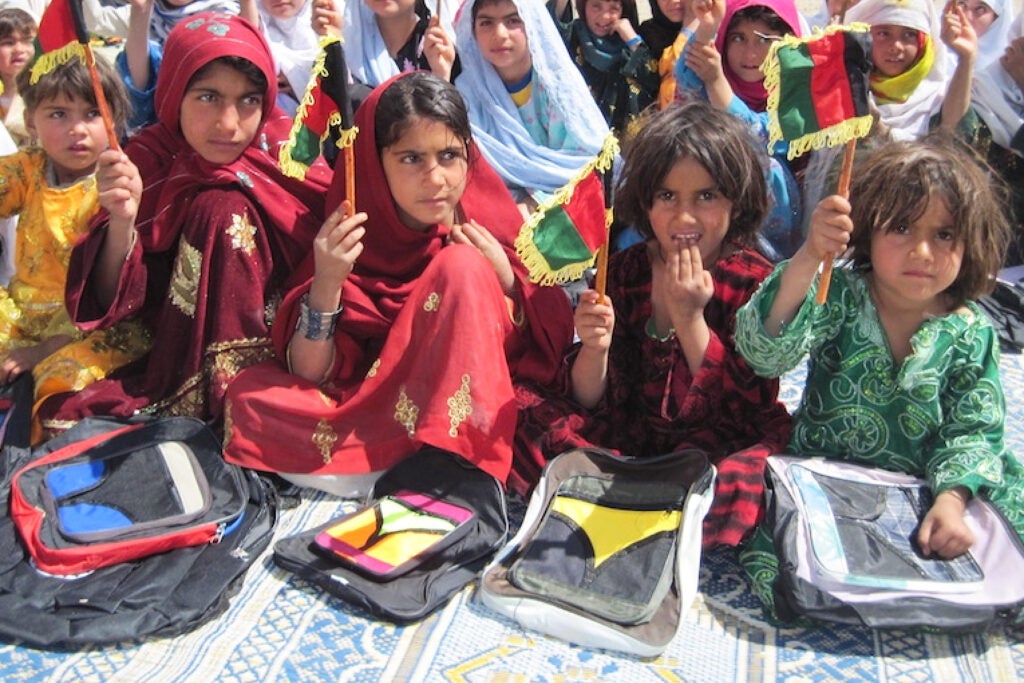
Cultural competence and linguistic competence are considered essential to be responsive to diverse populations and communities and widely accepted by policy makers, educators, researchers, practitioners, and families. Cultural and linguistic competence are evidence-based practices that advance equity by reducing disparities and ensuring access to quality services for people from all cultural, linguistic, and other cultural identity backgrounds.
Thrive Center is dedicated to increasing the capacity of health and mental health, education, disability, and other human service systems to create, implement, and evaluate culturally and linguistically competent policy and practices that are responsive to diversity, mitigate entrenched disparities, and promote equity. Our teams deploy research-to-practice approaches to improve outcomes for communities disproportionately impacted by systemic inequities locally, nationally and globally.
Current Research
Kalb, L. G., Kramer, J. M., Goode, T. D., Black, S. J., Klick, S., Caoili, A., … & Beasley, J. B. (2023). Evaluation of telemental health services for people with intellectual and developmental disabilities: protocol for a randomized non-inferiority trial. BMC Health Services Research, 23(1), 795.
Georgetown-Howard University Centers for Clinical and Translational Science
Clinical and Translational Science Awards (CTSA) aims to translate research into policies and practices that favorably impact the health of local communities and the nation. The GHUCCTS mission is centered on the District of Columbia and locally surrounding counties in Maryland and Virginia. GHUCCTS places great value on involving communities and other partners in the development of health research. GHUCCTS Community Engagement Team works to build partnerships between universities, patients from culturally and linguistically diverse backgrounds, and the local community. A Georgetown University National Center for Cultural Competence faculty member serves on the GHUCCTS Community Engagement Team.

Technical Assistance
Thrive Center provides technical assistance that is (TA) that is uniquely designed and culturally-tailored to diverse communities, private sector organizations and foundations, tribal and governmental agencies/organizations at the local, state, regional, national, and international levels. The primary goal of all TA activities is partnering with organizations and community members to support their capacity to implement systems change in policies, practices, and programs that advance and sustain cultural and linguistic competence and promote equity.
Local & National
- Georgetown-Howard Universities Center for Clinical and Translational Science
- Advancing Cultural and Linguistic Competence, Diversity, Equity, and Inclusion OPWDD-NCCC Partnership for Systems Change
- Early Childhood Intervention Equity Center for Equity·
- California Department of Developmental Services
International
- For over 20 years faculty from the GUCCHD have partnered with United Aid For Azerbaijan (UAFA) to provide training and technical assistance on early intervention, inclusion, and deinstitutionalization.
- For the Abu Dhabi Early Childhood Authority , United Arab Emirates, the GUCCHD provides training and technical assistance on a broad range of early childhood topics including child protection, early intervention, and early childhood mental health.
- As the home to the US Afghan Women’s Council (USAWC) , the center brokers, coordinates, and promotes programs that address equity and inclusion issues for the women and girls in Afghanistan.
People
Adjunct Associate Professor of Pediatrics
OPWDD Program Director
Associate Professor
Director, Georgetown University National Center for Cultural Competence
GUMC Adjunct — Assistant Professor
Director of Research and Evaluation OPWDD-Georgetown University NCCC Partnership for Systems Change
Adjunct Assistant Professor of Pediatrics
Research Instructor
General publications
- Community of Practice on Cultural and Linguistic Competence in Developmental Disabilities
- Cultural and Linguistic Competence Health Practitioner Assessment
- Cultural and Linguistic Competence Checklists for MCH Training Programs
- Mentoring – an Evidence-based Strategy to Increase the Number of Students and Faculty from Racial and Ethnic Groups Underrepresented in Maternal and Child Health Training Programs
- Promoting Cultural Diversity and Cultural and Linguistic Competency: Self-Assessment Checklist for Personnel Providing Services and Supports to LGBTQ Youth and their Families
- Transition: Cultural and Linguistic Competence Checklist for Medical Home Teams
